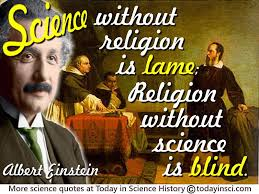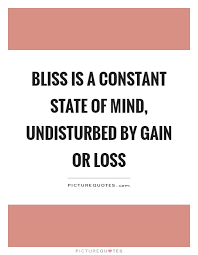Quote from the True charm and power of Vedanta
The modern West’s Recent Desiree to Resolve this conflict
This division between the two human faculties of faith and reason has done no good to the West, except in the short run; in the long run, it has started proving harmful to the west itself. Hence the west is also making a reassessment of the true relationship between faith and reason. Increasing members of religious thinkers and institution in the West today are seeking to find rational and scientific foundations to their religion buy putting more emphasis on experiment and experience than on creed and dogma. There are also similarly , increasing members of scientists in the West who tell us today that man needs religion and faith, not only that they also hold that these are more important for man compared to physical science; but they also insist that it must be a religion that can stand rational scrutiny ; otherwise , it becomes mere superstition, it becomes cheap magic, it won’t be true religion . But such as approach to religion is not available to them in the West from; their own historic experience, . They are now in search of such an approach in the Indian and other Eastern traditions; there is slowly growing the appreciation in the West that the Indian experience has been quite different in this field from the Western experience; and yet , we ourselves in India, do not know precisely what is the nature of this Indian experience, this unique Indian approach to this great subject!
The modern period of history is described as a scientific period, and science is dominated by the spirit of critical reason, questioning, investigation. It is very interesting for us to know how this new spirit appeared and developed in the modern West during the past four centuries. We are also passing through a scientific revolution in India today; we shall be teaching science to every child in our country, from the primary school to the university level; . We welcome this programme of widespread diffusion of science and the scientific spirit in our country. And it is a fact the significance of which we should not miss to note well that we accord this welcome in the very light, and under the very stimulus of our displace it, unlike what it was in the West, We and our national tradition have no fear of physical science, and of reason which is its very lifeblood., on the contrary , we welcome it, because we see something great in it. What is that something great? As I said earlier, our national tradition recognizes it in its critical spirit, in its sprit of free inquiry, in its search for truth. What a beautiful quality it is to be acquired by the human mind, and to be used by it for seeking truth and verified knowledge!
The seed of divinity is present in all of us
By Anup Taneja
In the Chandogya Upanishad it is repeatedly stated, ‘Tat tvam asi’, ‘You
are That’, which suggests that the Supreme Lord, the Higher Power, is right
there in the innermost recesses of our Being. Meister Eckhart, the great German
philosopher and mystic, taught that the seed of God is within all of us. Just
as a farmer plants a seed, waters it, takes good care of it, and ensures that
the little plant blossoms into a big tree, we too can realise our full
spiritual potential by leading a pure life and performing regular meditation
over a period of time.
By observing a mango tree over many seasons wherein thousands of mangoes
are produced, we can say with confidence that the potential for these mangoes
was present in the single seed from which that tree sprang. Similarly, one
should remain aware of the fact that the God-seed is present in all of us,
waiting for water, intensive care and proper nourishment to make sure that the
seed grows quickly and properly.
The Divine thus is the essence of every person in the universe, what
Emerson called the ‘Over-soul’. Even though God is one and indivisible, yet he
lives in every one of us; it is for this reason he appears to be many. It is a
paradox that God, despite manifesting himself as the colourful universe with
myriad diversities, remains immaculately pure and untainted. And completely
transcends the Universe. Thus, his two aspects – immanent and transcendent –
though apparently opposed to each other, should be understood as two sides of
the same coin.
In the final stages of meditation, when all the selfishness that separates
us from the Supreme is eradicated, we discover this Self in the depths of our
Consciousness. In yogic terminology this sublime state is called ‘Nirvikalpa
Samadhi’ wherein no duality of consciousness is experienced; in this state the
seeker soars high in the realm of Pure Consciousness where there is nothing but
supreme bliss. Here, all distinctions of time and space get obliterated and the
seeker passes from time into the Eternal Now. It is at this stage that the
seeker is blessed with the final beatific vision, where he sees the ‘face
behind all faces’ – the Ultimate Cause behind all phenomenal existence.
We may conclude with the following words of Meister Eckhart: “To get to
the core of God at his greatest, one must first get into the core of himself at
the least; for no one can know God who has not first known himself. Go to the
depths of the soul, the secret place of the most high, to the roots, to the
heights; for all that God can do is focussed there.”
IF HE EXIST
I drive joy there was a doctor in
Benaras who spent 7 minutes in the morning and evening for mediation on God.
Knowing this, his colleagues and friends laughed at him. One day they argued
that he was wasting 7 precious minutes on something, which he had been misled
into believing. The doctor replied, “Well, if God does not exist, I agree that
I am wasting 7 minutes a day. But, if He exists? I am afraid you are wasting
your entire lifetime. I prefer to waste 7 minutes rather than a lifetime. Why
should you grudge me the 7minutes joy that I derive 4m.-
ILLUSTRATED REVIEW : 7th heaven moment of
the week India won first t20 by 7 wk











.png)

















